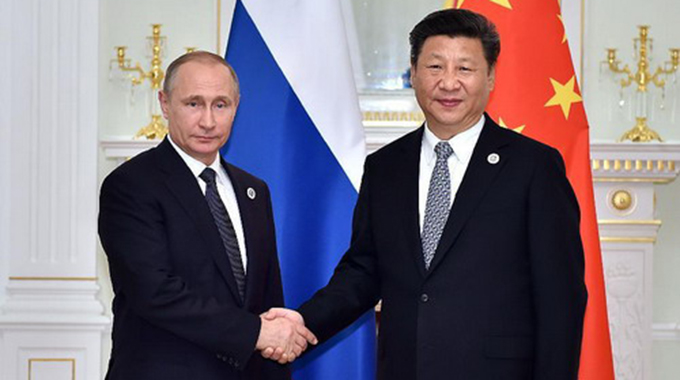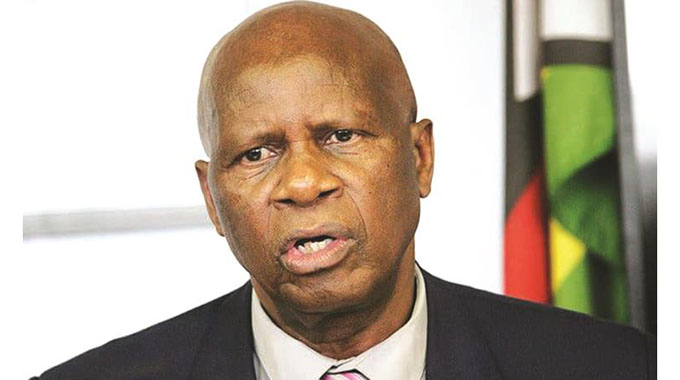@JAMWANDA2 ON SATURDAY – Zimbabwe: When real gold glitters

“Small places sometimes generate events of wide historical importance”, wrote Linda Colley.
I would go so far as to add that as with small places, so, too, do small people.
Those with a good grasp of history remember the murder at Sarajevo which ignited the first European War, a war wrongly called the First World War. Or more recently how the self-immolation of an embittered fruit vendor, Mohamed Bouazizi, on December 28 in 2010 ignited the so-called Arab Spring which swept aside several seemingly omnipotent potentates in North Africa.
A flammable world only requires a small flame to ignite it.
Tensions in the Strait
Similarly, a few days ago we witnessed how a combination of a small place — in this case China’s rebellious province of Taiwan — and some little human — in the circumstances the wizened speaker of US Congress called Nancy Pelosi — nearly led to another major conflict, this time in Asia.
As I write, China is furious and has been conducting live drills off the coast of Taiwan, thus closing the ever commercially busy strait separating mainland China from its insolent province. The drills have also affected Japan. Taiwan regards this Chinese action as amounting to a blockade, which international law regards as an act of war.
It threatens to appeal to the United Nations, of which it is not a recognised member, and which we all know cannot do anything about such stand-offs involving a superpower, as we have already seen in the ensuing Russia-Ukraine conflict. Simply put, multilateralism is dead, with any invocation to such, amounting to nothing more than the plaintive whimper by the hapless. Blatant hard power now shapes the world as never before.
Spreading the old witch brew
In the meantime, Pelosi has since left Taiwan to ratchet up and ignite new fires and more tensions in the Korean Peninsula. In all this, the American Government plays the righteously uninvolved, using the lame argument of separation of powers, a national doctrine which means pretty little in international relations.
In the eyes of US national laws and values, Speaker Pelosi might be ‘independent’ of the American Executive; abroad, she is a key cog in the American expansionist machine. This is why the Biden Administration deployed into the South China Sea, all to protect the lady in her fraught strut to and from Taiwan.
So much ado about so little
Looking back, one asks what this provocative gesture by Pelosi achieves for US and for Taiwan or, the obverse, what it costs China. Apart from a symbolic piece of cloth which Pelosi got strung across her small bosom by way of Taipei’s highest civilian honour, and her statements embroiling the seemingly uninvolved Biden Administration into the China-Taiwan conflict, there is nothing else to show as having been gained.
I mean if an independent Speaker can pledge support to a rogue province of China, and add the United States of America will not be indifferent in the global struggle between democracy (read the West) and autocracy (read China and Russia), does not the wafer thin national boundary between the Executive and the Legislature claimed by American law fall away?
Uniting China and Russia even more
Here are the results of that ill-fated, in fact needless, trip. Firstly, it underlines that global resentment of the United States continues to grow, with the superpower having to rely on raw power, not charm and persuasion, to influence global course of events. One does not want mass hatred of 1,4 billion people.

Presidents Putin and Xi Jinping
And that more nuclear states are standing up to the United States clearly shows how global power relations are tilting in US disfavour.
Making new bedfellows
Secondly, because US global power stands challenged, her bid to reassert her might is being pursued at the expense of prudent foreign policy. Put simply, it continues to alienate many in the world, while also preparing and delivering very comfortable beds to states which ordinarily would be strange bedfellows.
And these are no small states. Through Pelosi, US has managed to push China firmly into the camp of Russia, with both powers realising the futility of appeasing US. Or engaging it piecemeal. What is likely to happen now and in the future is a multiplexed effort towards degrading US might, and towards a new world order in which US and NATO are circumstantial subalterns.
With the majority of the world already angry with US’ long-time impunity, and given the global presence of Chinese capital as a force for good development, US may very well find it difficult to pick up allies in this worldwide rift.
Carter Centre and intrusive politics
What then does this mean for smaller States like Zimbabwe? Well, the United States is already pursuing an aggressive regime change policy worldwide. Through it, it seeks to supplant independent-minded States in order to replace them with client states amenable to US policy.
Pakistan was the beginning of that programme which is likely to radiate worldwide. With Biden’s influence waning precipitously, US interventionism will escalate, as was seen in its covert operations in Afghanistan just a few days ago. In our case, we are likely to see US meddling in our electoral processes, a policy already heralded by agents of the Carter Centre who deployed themselves willy-nilly into our country, and had to be deported earlier in the week.
This is an augury of things to come.
Engrafting thorny branch
Triple C are trying rather too hard to engraft themselves onto the liberation struggle in which they were non-participants; which they have traditionally opposed, and which many in their hierarchy — like David Coltart — fought against. This overdone effort follows withering criticism Triple C faced after romancing Ian and Janet Smith, and after repudiating ideology, values, structures and internal electoral politics that ordinarily determine leadership.

David Coltart
What Triple C does not realise and is reluctant to acknowledge, lest its critics are vindicated, is that this tergiversation is precisely a consequence of its not being moored to any ideological value system, least of all a national one, which is why it hops between ideological beds, much like an opportunistic harlot.
Political construct from afar
Of course the deeper reason for all this is that Triple C is a political construct done by those from afar. The only time it moves is after a Stephen Chan brings fresh instructions from the real owners on what to do and how to behave. Once the locus of decision-making is properly done, it is not hard to understand Triple C’s dalliance with Ian Smith, himself a bad but loyal son of the Empire.
As I write, Britain is searching for ways and means of reissuing imperial bonds, suited to the 21st Century. Across its former colonies, it is testing acceptability of old imperial bonds as it fashions a new policy that shores it up, against waning influence and shrinking global reach.
South African experiment
We must all watch what happens in South Africa, especially as that great country moves closer to its elections. The Democratic Alliance is a very important Trojan Horse on which to fasten Britain’s new Africa imperial policy, while retaining a veneer of popular, democratic and elective support.
Once that works in South Africa, we will see a wave of many such efforts, using institution of opposition as the instrument, and elections as the process. This is why the ANC must not lose. Post-liberation societies like Zimbabwe, with very strong and steadily self-renewing nationalism, present a clear problem for NATO-led imperialism.
This is why it is important to use the Ian Smith bogey to test the strength of nationalist cohesiveness, and not our society’s hankering after settler colonialism, which the West knows is a hard-sell here.
Re-invoking the straitjacket
Speaking of which, I am happy Cde Chinamasa has now formally picked and presented the argument: that a party which does not meet basic criteria of proper constitution must be disallowed to bid for power. That stands to reason, surely! Triple C has no constitution, no known ideology, no elected leaders, no structures.

Cde Chinamasa
Elections are known to spew imponderables — check what happened in DRC — such that only reckless societies don’t budget for the awkward, even unlikely. Which is why it is important to view any Presidential aspirant, however dim the prospects, as someone potentially positioned for national leadership.
That impels maximum safeguards, including ensuring such persons do not offend against basic mores and ethos of leadership. This is what is meant by straitjacket.
Failing the master’s yardstick
In Chamisa and his Triple C party, we have a formation which offends against basic tenets of Western values which he and his party purport to espouse, before we even subject both to our onerous national tenets and values. On western values alone, Triple C thus can be knocked out until such time it meets basic requirements set by its masters.
Is that not what its masters are demanding of us, much as we know the real reason is economic? Let’s pay their stooges here in their own coin. Ministry of Justice must weigh in to give legal force to this position so there is legal foundation to what for now is a mere sentiment and argument. There is nothing to fear or hesitate.
What a result!
So the gold coins have sold out, oversold in fact? We didn’t have many available for sale —possibly a mere 2000 or so. The idea was to test the market and, whoop, what a result! Clearly there is an appetite for the coins, all that false Twitter hullabaloo notwithstanding.

Zimbabweans know what they want, understand what their Government is doing for them. They have weighed in in full support. End of story. We can now go full throttle.
Blazing the trail
Second, Zimbabwe’s experiment has been noticed in the region and beyond. Only South Africa during apartheid days did the same, using krugerrand. To my mind, this is the first ever such monetary project by an Independent African State, and this in response to the global drift away from fiat money to commodity-mediated forms of international exchange.
Gold we have in abundance; diamonds we have in sizeable deposits. Platinum? Aah we have the largest cheapest deposits on the Continent and the third largest globally. It does not matter which mineral the world turns to in place of the notorious US paper, Zimbabwe is ready. This is the Zimbabwean Century!
Market without depth
Third, the causal link between instability in the financial sector and the fervent search for things that store value – itself a third purpose of money — is now established and verified. We now know where the rains started beating us, and thus can tell when and how to get dry. Once fully known, a problem is half solved.
Simply put, our financial market lacked depth, something which speaks dimly of our monetary authorities and actors. Clearly the Central Bank and its 16 or so deposit-taking institutions have been tardy and legging behind a long matured market, hungry for greater savings.
With appropriate and adequate instruments, our savings function would have grown by leaps and bounds. We have been throttling this key element in the national equation, forcing eager citizens to break the law for want of alternatives. The financial system should be mortified. It has failed the citizen.
More, it should catch up and move forward with innovation to ensure the market gets more products, developing depth thereby.
Finishing off the monster
Fourth, the week the coins were made available saw the black market getting starved and growing spectre-thin. What remains is to kill it off by ensuring coins match huge demand and the strong urge there is for value-retention. Big corporates are important.
They are the ones who trigger mayhem in the market as their financial advisers seek to protect value. Gold coins must now be available to many actors and for many purposes, including the post-120 days surrender requirements for exporters. These important players must not go into the black market to buy United States dollars upon the expiry of 120 days after export earnings. Or to dabble in transfer pricing.
They should know the market has attractive options which make liquidation inviting.
Ending a mismatch
Fifth, it is critical that the Fiscal and Monetary Authorities keep ahead of the game. Nothing is easier to hit than a standstill target. The way forward is keeping the market hit by new measures and instruments until investors burp with a surfeit of options.
We must get Zimbabweans to know gold is more valuable than US paper. We must get all Zimbabweans – great and small – to know the national market has something for everyone. We already know that even those living on the borderline are active economic units when it comes to the black market.
We do not need to criminalise this unaided financial inclusivity; rather, we should canalise it to purposeful ends. These are the results of building literacy; it only becomes a problem when a highly literate society is perceived as highly illiterate financially. That mismatch must now end.
Froth of perception
Sixth, in our situation perceptions are portend. So portend that they easily destabilised. This market has been moving on fears and self-fulfilling speculations; it has not been moving on spot rates or real fundamentals. And some of the measures we instituted – the auction system principally – has been moulding into national trait an expectation of a higher exchange rate weekly, which means a weekly weakening of local unit.
Expectedly, the whole society developed a habit of taking positions, weekly! The rich would withhold huge sums in anticipation of a new, higher weekly rate. The poor would brace for new round of higher prices, again weekly. Producers would make sure the time horizon for pricing diminished with every production.
All these put together, conspired against the local unit. We didn’t need to wonder.
Powerful message from fuel price
I am happy this ruinous cycle is now being broken. The downward price change for fuels is important both in itself and symbolically. It sends a powerful message across the market, changing perceptions nationally. We should build on this, getting key actors to revise prices downwards, so we deflate this false inflation bubble, inside of which is mere air and froth.
We should see a definitive deflationary trend, bulking global trends.
When Government is the culprit
Seventh and last, the public sector has been stoking money supply. Without going into details and…to Chikurubi ( I am sworn to secrecy!), the State, through its various Ministries, has been discharging into the market more than ZWL10billion a week, through payments, all of them consumptive!
This is hardly surprising: the State accounts for upwards of 75 percent of purchases in the market. I would not have minded if this stupendous amount related to payments for productive activity.
No, all of it went towards consumptive activity. Number One is now seized with the matter and this gargantuan public tongue will now be restrained. Trust me! We who eat masese have nothing to worry. We can loosen our tongues, in anticipation of plenty. Zimbabweans are drinking more opaque beer, after all.
Hurray to my fellow donkeys!!!!









Comments